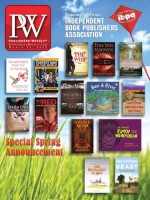Two fictional Minnesota towns, one rich, one poor, clash in Brian Freeman’s novel of psychological suspense, Spilled Blood.
What is it about the rural Midwest that prompted you to set all your novels there?
I was born in Chicago. My family had a little cottage near Lake Michigan. Going to the cottage most summers shaped my vision of the Midwest. It was the dirt roads, the cornfields, the small towns, the diners, and the lake. That was the Midwest I wanted to capture. And I believe extremes enrich drama; this area has a wonderful combination of extreme elements. The area, the stories, the characters—they all blend together perfectly in this locale.
Your previous novels are set in places that exist, but Spilled Blood is set in two adjacent fictional towns. Was it easier, or more difficult, to set your novel in a fictional region?
When I write my books, I like to scout locations like a film director would. As I’m outlining, I leave the locales for each chapter open so I can actually go places and see what best for what’s happening in that chapter. In this case, I had to create an area, and that was much more of a challenge. Most of the scenes in this book are inspired by actual places, but I created a landscape that fits the story and the nature of the characters. Spilled Blood is really about a feud between two towns; I wanted to structure a landscape that reflected the nature of that feud, such as the river that both divides and unites the towns.
Why do your novels almost invariably include teenage girls who end up dead?
I find teenagers to be wonderful characters because they have all of the hormones, the desires, and everything else that goes along with being an adult, and almost none of the emotional maturity. Because my books tend to involve people acting in extreme ways, teenagers tend to be good characters in that regard because they don’t often understand the power that they have.
Why is Christopher Hawke, the book’s hero, not always so likable, and the book’s various villains not always so despicable?
I like to write about ordinary people who are drawn into terrible situations. I want the characters to be real. I don’t want readers to always agree with what the hero did, and I want them also by the end to have some understanding of how someone who is fundamentally like everyone else winds up doing some terrible things. That’s a harder climb for the writer, but it makes it more interesting for the reader.



 Volume 259
Issue 13
03/26/2012
Volume 259
Issue 13
03/26/2012





